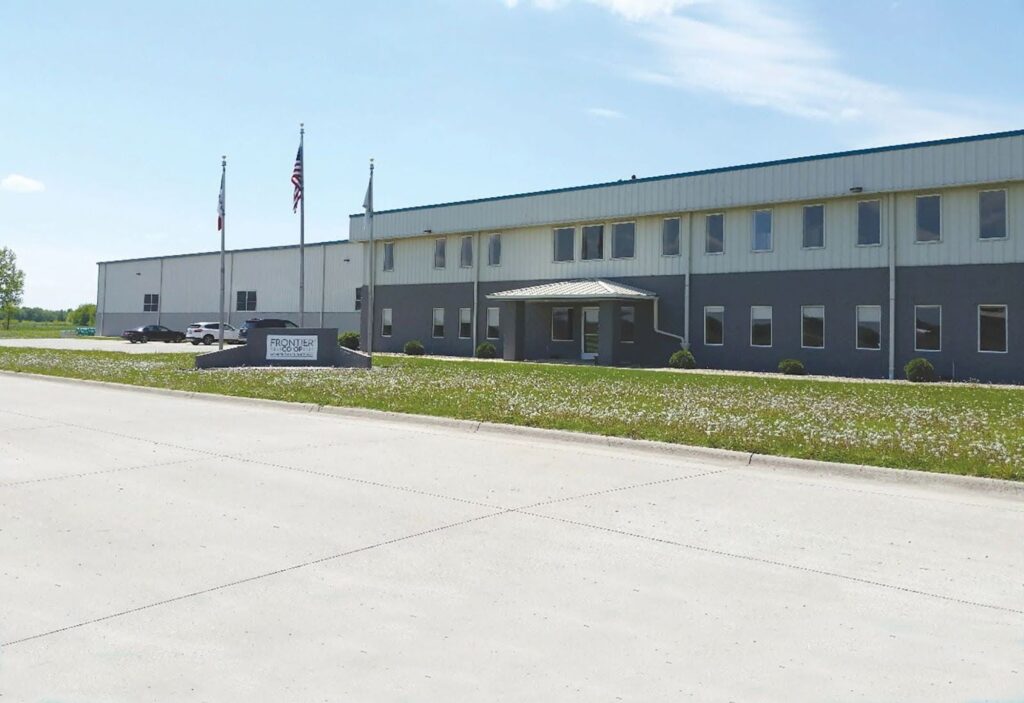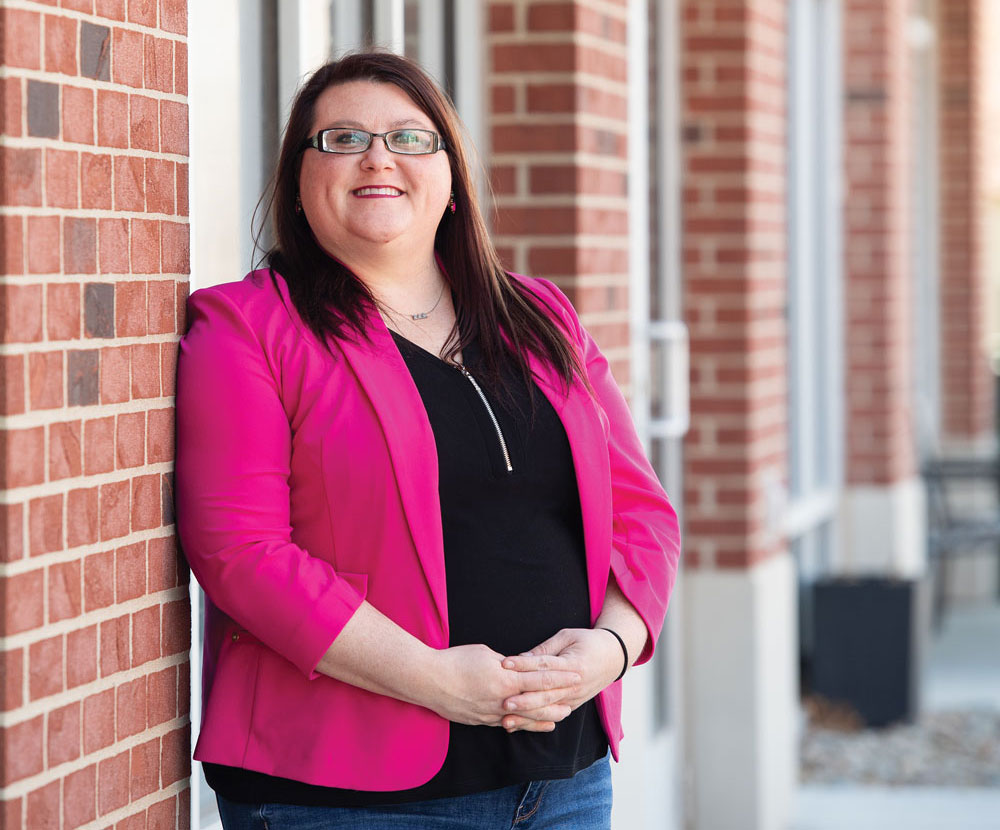A Closer Look: Juan Pablo Sanchez
Director of inclusive business strategies, Greater Des Moines Partnership

SARAH BOGAARDS Dec 20, 2022 | 3:36 pm
5 min read time
1,296 wordsA Closer Look, Economic Development, Innovation and Entrepreneurship
Joining the Greater Des Moines Partnership in the newly created role of director of inclusive business strategies is only the second job in Juan Pablo Sanchez’s career.
For almost 20 years prior, Sanchez served in the Chilean navy, where his role often interacted with community members and industries outside the military. His time in the navy led him to discover and pursue his academic passions around business and imbued him with skills in leadership and persistence.
Moving to Des Moines was a homecoming for Sanchez’s wife, a native Iowan. He said taking on a new initiative while continuing to serve a community attracted him to the role at the Partnership, which aims to advance minority-owned small businesses in the region.
From data collected and conversations with business owners, Sanchez said there has been repetition in the top barriers to growth among small business owners of color: access to capital, contracts and information.
“It’s very important for us to create awareness and try to provide the same options so [minority-owned businesses] can keep growing. As they grow, the entire community can benefit out of that,” he said.
This year, Sanchez led the launch of the Scale DSM Minority Business Accelerator, a six-month program using the Streetwise MBA curriculum from nonprofit Interise. The first cohort of 10 business owners completed the program on Dec. 13, and two more cohorts are planned for 2023 and 2024.
Sanchez said the Partnership is also developing a microloan tool planned to launch in 2023 with support from local partners, including financial institutions.
Sanchez shares more about his first year.
This Q&A has been lightly edited for clarity and length.
Why did you decide to join the Chilean navy?
I was in high school trying to see my options and I have always liked to dream big and at that time, that big dream for me, coming from a small town in the south of Chile far from the ocean, made me think that trying to join one of the most prestigious educational institutions in the country like the Chilean Naval Academy could open doors for me, and that’s exactly what it did. It opened the world for me. It gave me the option to travel around the world and be in other cultures, and academically it fueled my desires and was very challenging but I was able to graduate after four years. Then, when I was about to choose my area I chose the Port Authority, kind of like the Coast Guard area, because I wanted to be involved with the community. I wanted to be involved with helping a more external loop than the more traditional navy. In the Port Authority I was working with people in other industries, with people not necessarily in the military, and that’s what I did for almost 20 years.
What have been the focuses of this new role so far?
First of all, it was very attractive because it was challenging. I love to take on a challenge and it is business-oriented and something that I think I had the experience. I love conducting projects, and this is a very neat project because as I do what I do, I’m also helping the community. I’m serving the community. This role is focused primarily on the underrepresented, underserved group of our population – so we start from there. We have the help of our business consulting companies that we’ve been working with as well. In order to have accurate data to see what is the reality of our minority-owned businesses here. Where is the need? Where are they located? So whatever plan we put out can be very accurate because we had the data. Since we understand that we can only achieve so much if we are going on our own, one of our major goals is to bring together the entrepreneurship ecosystem that we know exists. There are other organizations trying to do what we’re trying to do here at the Partnership. We can bring together the ecosystem, we can set up community-based projects so we can achieve bigger things. We can work in a coordinated manner so we can better serve our target population here. We’re super happy that we’ve been able to set up a very good group of organizations that we’ve been meeting on a regular basis.
Does the Partnership have any plans for what those community-based projects could be?
Yes, more related with sharing information between organizations. Sometimes entrepreneurs keep knocking the same organization’s door with the same statement, but if we can have some common information, we will know better where to direct those entrepreneurs. All these organizations are on the same journey here to help entrepreneurs but we don’t do the same thing. We don’t aim with the same focus so it’s good to know what each organization is doing. Sharing data, sharing information on our projects, we are starting to do that in our regular meetings. Knowing what projects the organizations are working on and how those can interact.
Can you give an overview of why the Scale DSM Minority Business Accelerator was started?
We’re creating this role, inclusive business strategy, in order to serve minority-owned businesses, in particular small businesses. We defined the areas that we’re going to tackle, and since, we’ve been collecting the data and seeing what other organizations are doing and hearing from business owners about what they need. It’s kind of a repeating story that they need things like access to capital, access to [supplier] contracts, access to information, educational activities. They don’t have much time but they still want to learn [and] expand their network. We decided to go after all those areas, not all at once since we just started establishing this role, but definitely Scale DSM aims to tackle the educational area.
We went out and we did our research and we found out there were a number of educational mentoring resources for those that are just starting a business [providing] very basic knowledge, but at the same time very important, but there were other organizations working on that. Then we found out that there are a number of minority-owned businesses that have passed the startup phase; they had been operating for years already, but for some reason they couldn’t scale, so they needed help in knowledge as well.
What can you share about the new microloan tool the Partnership is working on?
We’re going to give loans for minority-owned businesses and the low- and moderate-income population that have a good business idea. We are contracting with the Iowa Center for Economic Success. They are the [Community Development Financial Institution] so they have the experience and the knowledge of the microlending space. We are working very hard on this initiative to just join the effort that other organizations are doing to tackle this specific barrier, which is access to capital. We understand that they can put it on an e-commerce website, they can buy basic equipment so they can start their economic activity, but also at the same time, we understand that this is not the solution to all the problems. We just want to join the effort. This is an entire community challenge, starting with banks, financial institutions, credit unions. They all have to be involved in the journey and how we can lower the barriers so we can reignite the community.
What are you currently reading?
I’m reading the book called “The Rainforest: The Secret to Building the Next Silicon Valley.” I think it helps a lot to understand how the entrepreneurship ecosystem works and why they sometimes fail. Since I’m embedded in this project and bringing together the ecosystem, I think it will help me a lot. Also “Shoe Dog” by the founder of Nike.








